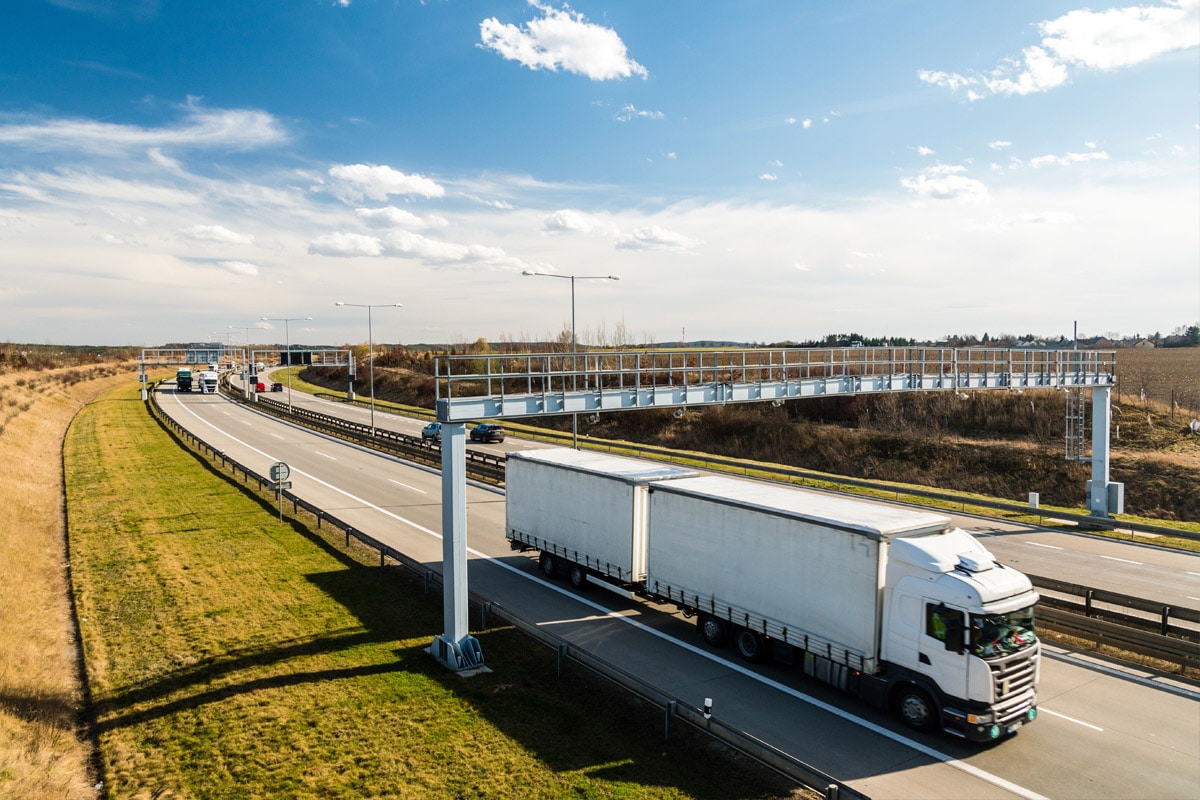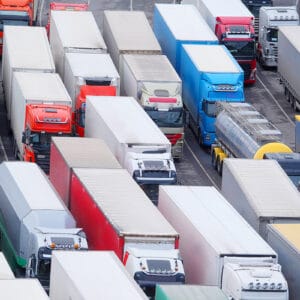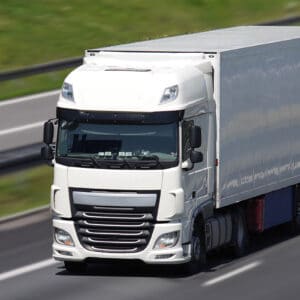The TSL industry is a real universe where there is so much going on, so to catch up with everything all the time it would require a 24-hour news broadcast. This is why in our cyclical review we try to talk about what is really important; current interesting information, fascinating facts, bombshells and familiarize you with the ongoing legal changes. This week are discussing plans to expand the toll road network in Poland.
Relief approved. It is related to the new payment system
A decision has been made on the tax relief which will be granted to owners of heavy goods vehicles. Entrepreneurs will be able to deduct PLN 500 net from their income for each vehicle in which a device for operating the new e-TOLL payment system is installed. Owners who purchase or lease an OBU/ZSL device will be able to use this option. The relief will be granted after the installation of the instrument and then after driving the toll section and paying. The implementation process of the e-TOLL solution, which is based on satellite navigation and will replace the existing viaTOLL, will start soon – in June this year. The Ministry of Finance has meanwhile announced the start of vehicle registration on the new platform. A special helpline is also available to users of the e-TOLL system.
National Recovery Plan (Krajowy Plan Odbudowy) Will entrepreneurs incur costs of the program?
The National Recovery Plan (KPO), which the Ministry of Finance and Regional Policy is currently working on and which needs to be developed in order to tap into the considerable resources of the EU’s Recovery Fund, may have an impact on the increase in the number of roads that have to be paid for to be used. At the moment it is a total of 3660 km (2500 km of them are motorways and expressways). The trans.info, looking at plans of officials preparing KPO, notes that the length of toll roads may soon rise dramatically. The charges would apply to heavy goods vehicles using newly opened high-capacity roads. The number of such paid sections would gradually increase in the following years. Officials explain that such a strategy results from the fact that for several years the toll road system has not been extended, although their standard in Poland is constantly increasing. It’s not a secret that the government intends to strongly support the competitiveness and development of rail transport, which is also promoted by the European Union.
Germany will refund drivers
There are indications that the authorities in Germany will return unduly collected funds to entrepreneurs for crossing the roads there. It may be even EUR 200 million. For many months now, controversy has been growing in our western neighbour about the rates for the maintenance of the local police, which are included in the cost of travel. Many entrepreneurs opposed such practice, and some of them made official complaints. Among them were also owners of Polish companies. At the end of last year, the Court of Justice of the European Union ruled that rates constructed in this way are incompatible with EU law, as the charge for road use cannot include the rate for police maintenance. Now the German parliament decided to lower rates, and that means that transport companies will be able to start applying for a refund of unduly charged fees. The claims of the biggest players are estimated to be worth several million euros.
Remote control of drivers’ work
Technology has an increasing impact not only on the life of ordinary people, but also on various branches of the economy, including the transport industry. This trend will not change, of course. Traffic inspectors will also be able to perform more and more of their duties with the help of technology and in a remote manner. Devices that allow officers to check remotely if truckers are exceeding their working hours and taking their rest are being tested in the Netherlands. It’s an experiment for now. But it is already known today that similar solutions will become the standard in the future. Modern vehicles leaving factories are already equipped with DSRC technology (Dedicated Short-Range Communications), which allows studying records of working time remotely. In accordance with EU laws, within a few years, carriers will have to start using devices that will allow remote control of tachographs.
It will be Europe’s largest truck park
A facility that will be Europe’s largest secure truck parking is being built in Denmark. As part of the investment there will be spots for 500 trucks, shops, restaurants, a petrol station, laundry and a hotel where drivers will be able to rest. There will also be security posts and a CCTV system on site. The whole will be fenced and will occupy an area of 270,000 m2. Construction is due to begin next year, near the E45 road.
DFDS picks up a new ferry. It will soon conquer a key European route
The series of modern E-Flexer ferries (made on request by Stena RoRo) is created not only for the needs of Stena Line. Other players known on the market will also benefit: Brittany Ferries and DFDS (both entities will use them on the basis of a long-term charter agreement). The Fifth E-Flexer Ferry was built for DFDS. The shipyard in Weihai has just officially handed over the ship to the Danish shipowner. This took place on 17 May this year, six weeks ahead of the schedule. The 216-metre Côte d’Opale, as the ro-pax is called, is replacing the nearly 30-year-old Calais Seaways vessel on the Dover-Calais route, becoming the longest ferry making regular journeys across the Channel. The ship can take 1,000 passengers on board. Its loading lane is 3100 m long and it is able to accommodate 120 passenger cars on a separate deck. Céte d’Opale will appear on the Dover-Calais route within the next few months. Click HERE for more news from the ferry industry.
Sources: rp.pl, trans.info, Deutsche Welle, Dziennik Gazeta Prawna, Inspectie Leefomgeving en Transport, PromySKAT




